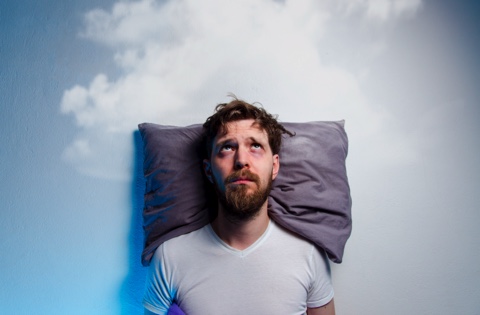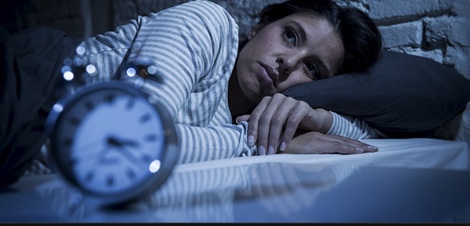We Need More Sleep

Sleep procrastination is a very prevalent problem that may be affecting up to 40% of the population. With an incredible amount of people not getting enough sleep, it raises the question of the effects of what sleep deprivation can do to the body. Sleep deprivation affects the brain, immune system, emotional well-being, and more. The epidemic of sleep deprivation has many detrimental effects, and the importance of sleep needs to be reestablished.
Sleep is essential for well-being. During sleep, our brains store information, cells and energy are restored, and many other vital biological functions are performed. However, more than 87% of high school students do not get the recommended eight to ten hours of sleep a night. Sleep deprivation is related to a myriad of health issues, like anxiety, depression, a weakened immune system, and even chronic health conditions, such as Type 2 diabetes and heart disease. A lack of sleep can even lead to an increased risk of cancer complications. You are also up to fifteen times more likely to end up in a car accident due to drowsiness. Clearly, especially for teenagers, an epidemic of sleep deprivation with deadly consequences exists.
 It is important to know why we need sleep in the first place. While the exact reasons for sleep are still unknown, there are a few strong theories that exist. A strong immune system is only accomplished with an adequate amount of rest. When you sleep, your body makes proteins, called cytokines, essential to the immune system for fighting infection. Also, sleep is vital for brain function. Memory, decision-making, problem-solving, and reaction time are all affected by sleep. For example, short-term memories get converted into long-term memories, waste—which is accumulated throughout the day—is removed from the brain, neurons reorganize, and more. Emotional well-being is also supported by sleep. For example, your amygdala, the part of the brain responsible for fear response, becomes more adaptive to stimuli from fear. Without enough sleep, your amygdala can react poorly to fear. As mentioned before, a lack of sleep can also lead to mental issues like depression and anxiety. Additionally, cellular respiration processes like muscle repair, tissue growth, and hormone release also occur during sleep. These are just a few of the many proposed reasons for sleep.
It is important to know why we need sleep in the first place. While the exact reasons for sleep are still unknown, there are a few strong theories that exist. A strong immune system is only accomplished with an adequate amount of rest. When you sleep, your body makes proteins, called cytokines, essential to the immune system for fighting infection. Also, sleep is vital for brain function. Memory, decision-making, problem-solving, and reaction time are all affected by sleep. For example, short-term memories get converted into long-term memories, waste—which is accumulated throughout the day—is removed from the brain, neurons reorganize, and more. Emotional well-being is also supported by sleep. For example, your amygdala, the part of the brain responsible for fear response, becomes more adaptive to stimuli from fear. Without enough sleep, your amygdala can react poorly to fear. As mentioned before, a lack of sleep can also lead to mental issues like depression and anxiety. Additionally, cellular respiration processes like muscle repair, tissue growth, and hormone release also occur during sleep. These are just a few of the many proposed reasons for sleep.
There are many detrimental effects of not getting enough sleep. Lack of sleep is associated with weight gain. A study conducted with 21,469 adults discovered that those who did not sleep enough were more likely to experience weight gain and were also at a higher risk of becoming obese. Another effect of sleep deprivation is an increased risk of many serious health conditions. In addition to an increased risk for cancer, Type 2 diabetes, and heart disease, a lack of sleep can also lead to dementia, a condition with extreme impairment of brain functions. Also, because the brain cannot perform necessary functions without enough sleep, memory-loss and learning ability are strongly affected. Impaired brain function can lead to you being more accident-prone, like an increased risk of being involved in a car accident. Furthermore, a lack of sleep will also cause rapid skin aging, with an increase in fine lines and wrinkles caused by the reduced elasticity of the skin. Clearly, getting enough sleep is vital for good health.
 The prevalence of sleep-deprivation problems raises the question of why so many people are not getting enough sleep in the first sleep. Sleep procrastination is when one does not go to bed at the intended time. Procrastination in general is often related to “academic behavior,” according to a study conducted in the Netherlands in 2014. Specifically, sleep procrastination is common in those working in high-stress occupations. Those who do not have great control over their personal time in high-stress occupations often experience sleep procrastination as a way to regain personal time. Procrastination is often caused by avoiding aversive tasks like homework or other time-consuming or stressful tasks. But, sleep does not fit into the aversive task category. According to the study, what may contribute to sleep procrastination is “the bedtime routines that precede going to bed that people dislike or just that they do not like quitting whatever they were doing.” Another study from 2014 indicates that personality traits, such as impulsiveness and being prone to distraction, can also be a cause of sleep procrastination.
The prevalence of sleep-deprivation problems raises the question of why so many people are not getting enough sleep in the first sleep. Sleep procrastination is when one does not go to bed at the intended time. Procrastination in general is often related to “academic behavior,” according to a study conducted in the Netherlands in 2014. Specifically, sleep procrastination is common in those working in high-stress occupations. Those who do not have great control over their personal time in high-stress occupations often experience sleep procrastination as a way to regain personal time. Procrastination is often caused by avoiding aversive tasks like homework or other time-consuming or stressful tasks. But, sleep does not fit into the aversive task category. According to the study, what may contribute to sleep procrastination is “the bedtime routines that precede going to bed that people dislike or just that they do not like quitting whatever they were doing.” Another study from 2014 indicates that personality traits, such as impulsiveness and being prone to distraction, can also be a cause of sleep procrastination.
Not only will a lack of sleep make you tired, but you can also experience numerous other negative health effects. With so many people experiencing sleep deprivation, it is important that we are aware of the detrimental long-term and short-term effects and why we are sleep deprived in the first place.
Resources:
Sleep-deprivation-and-deficiency

Cody is a senior and is actively involved in Keynote, NHS, Robotics, and Yearbook. He is the co-editor of Yearbook in addition to being Co-Editor...
